27th Session of the OSS Strategic Orientation Committee, Tunis, January 28, 2025
Held on January 28, 2025 in Tunis, the 27th session of the Strategic Orientation…
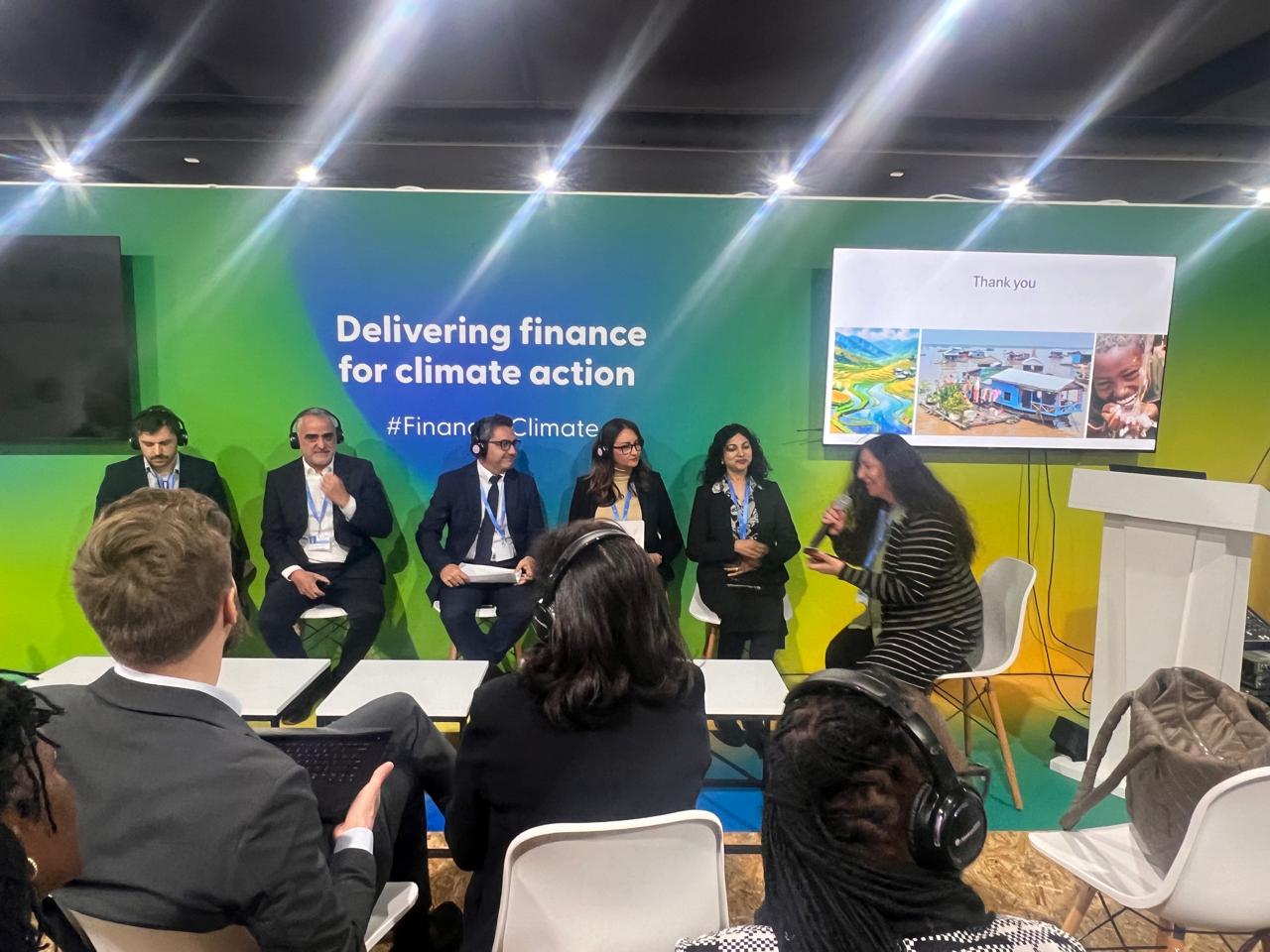
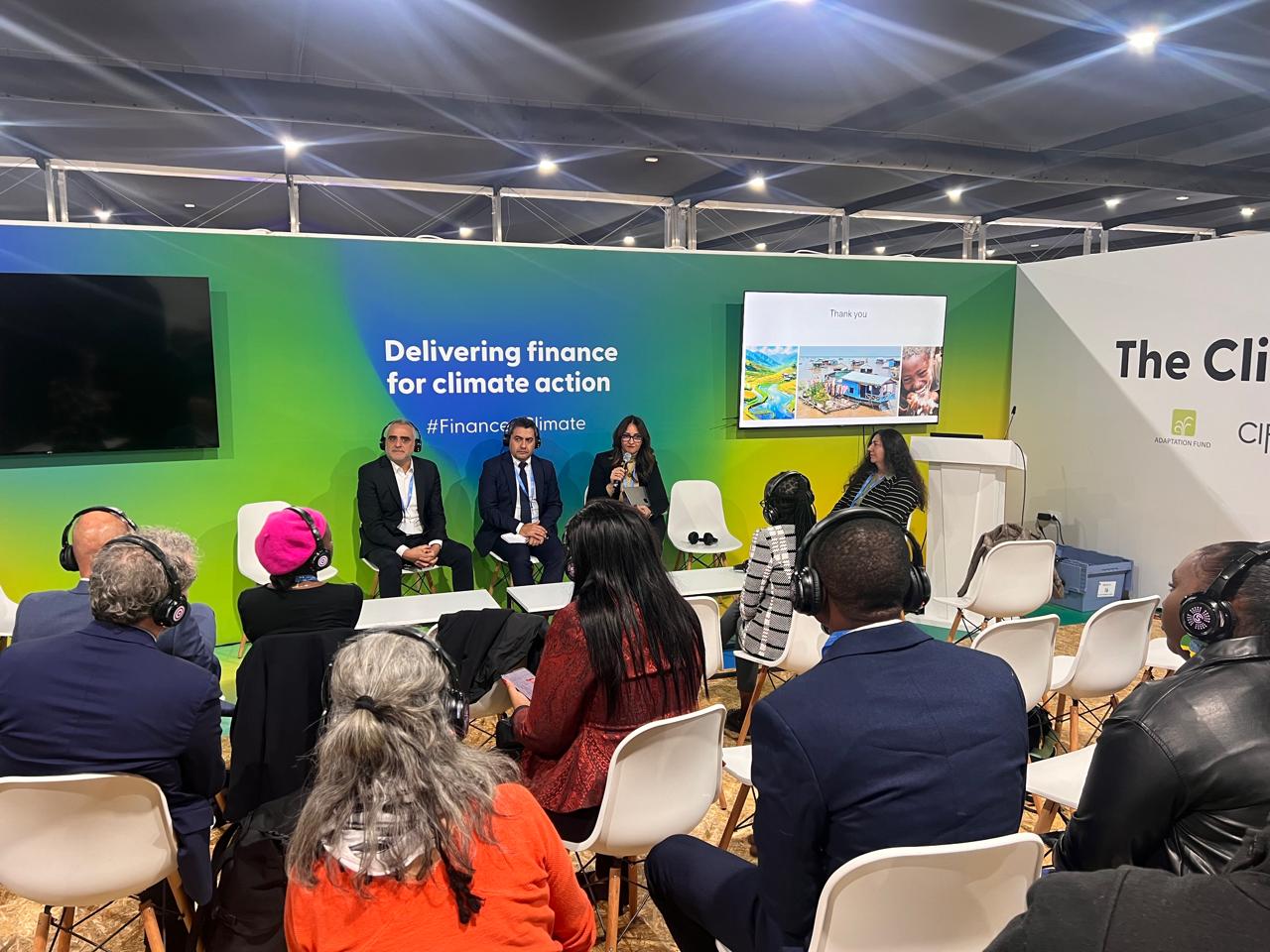
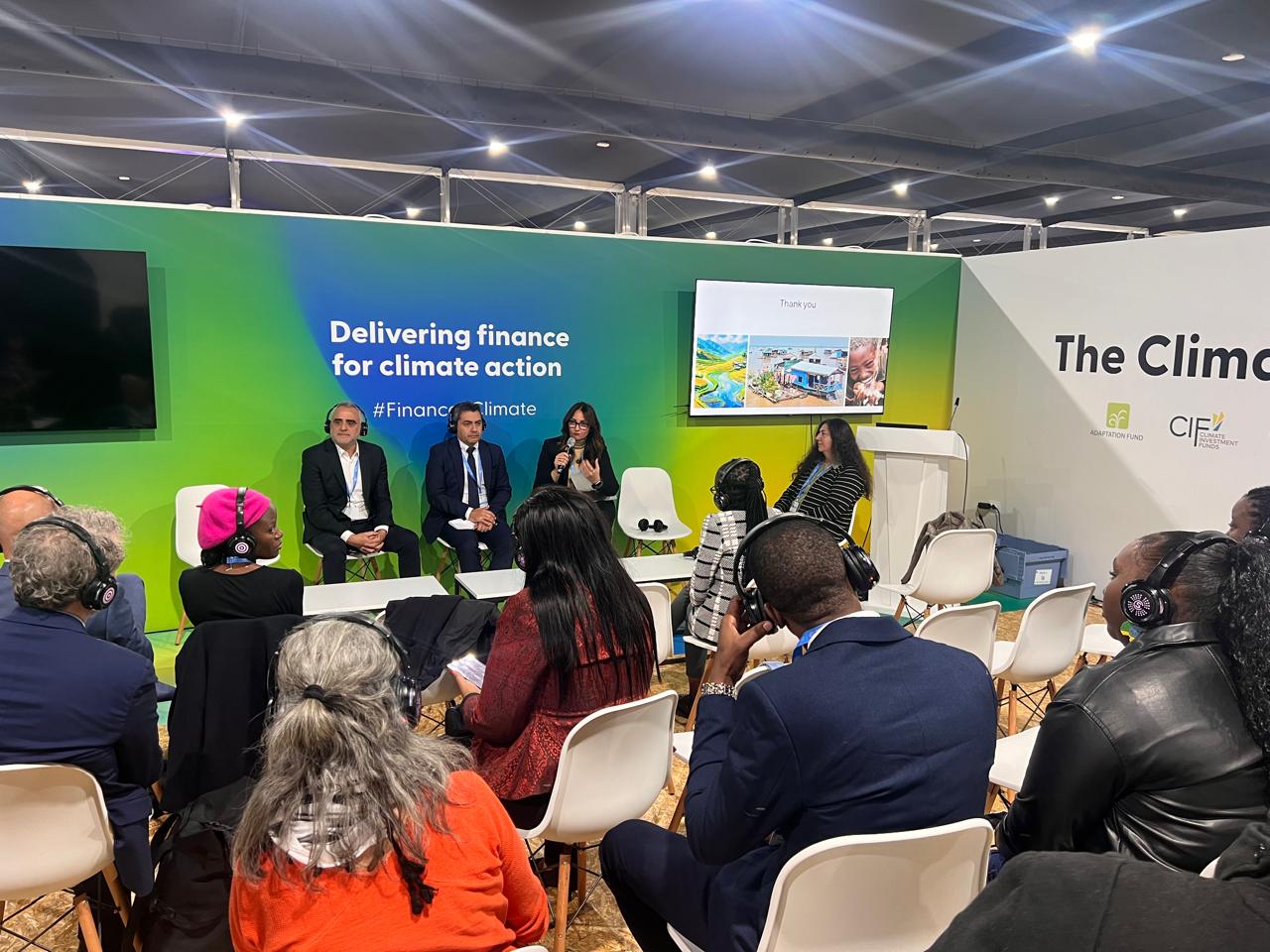
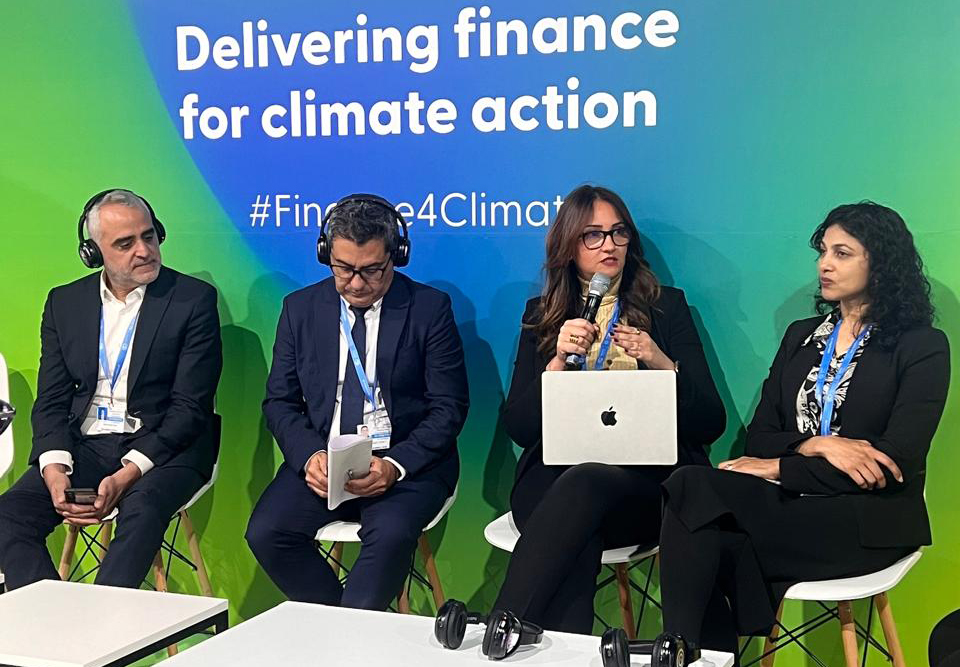
On the occasion of its participation in a side event, organized by the Adaptation Fund at COP29, which is taking place on November 11-22, 2024 in Baku, aiming to raising awareness about the challenges and lessons learned from implementing climate adaptation interventions in fragile and conflict-affected contexts, the Sahara and Sahel Observatory highlighted the challenges it faces in designing and implementing its projects.
Targeting national and regional implementing entities, designated authorities, and other stakeholders, this event brought together a panel of experts to discuss climate adaptation promoting strategies in frail and conflict-affected areas. Speakers included Ms. Neranda Maurice-George (AF), Ms. Fareeha Iqbal (GEF), Ms. Khaoula Jaoui (OSS), Mr. Houssam Chahin (UNHCR), Mr. Lindsey Johnson (WB), and Mr. Walid Nasr (IFAD), who shared insights and lessons to address the challenges of strengthening resilience in vulnerable regions.
Focused on financing climate adaptation in contexts marked by fragility, conflicts, and violence, the event provided Ms. Khaoula Jaoui, OSS Climate Department Director, with the opportunity to share in-depth reflections on the obstacles encountered and the innovative solutions adopted by the Organization to ensure the effectiveness and sustainability of its actions.
In her address, Ms. Jaoui emphasized that one of the primary challenges lies in the unavailability of reliable data in these complex environments. Prolonged conflicts weaken local institutions and limit their administrative and technical capacities, which hinders the collection of essential information for project development. Additionally, chronic political instability prolongs decision-making processes and complicates coordination among stakeholders. These gaps make initial planning particularly arduous and limit the capacity to anticipate risks.
In these challenging contexts, the lack of local expertise is another major hurdle, exacerbating complexities in recruiting qualified personnel and establishing project management teams. In many areas, the scarcity of service providers and suppliers, combined with frequent staff turnover, undermines the continuity and sustainability of initiatives. Meanwhile, physical access to project sites, often worsened by precarious security conditions, further complicates the implementation of planned actions. These logistical constraints, coupled with disruptions in supply chains, deeply affect the progression of activities and execution timelines.
To address these challenges, the OSS has adopted a proactive and flexible approach. During the design phase, an in-depth conflict risk analysis is integrated, allowing for better anticipation of potential issues. Through a Free, Prior, and Informed Consent (FPIC) process, local communities are involved from the outset, fostering their buy-in and ensuring that proposed solutions genuinely meet their needs. Stakeholder mapping is also a key tool for identifying social tensions and designing strategies tailored to local realities.
In the implementation phase, the OSS demonstrates significant adaptability. Initial strategies are regularly adjusted to reflect new realities observed on the ground, and mid-term evaluations enable the redirection of actions in response to emerging challenges. By leveraging civil society Organizations and community associations, the OSS addresses the limitations of public institutions in conflict-affected areas, thereby enhancing community resilience and their capacity to cope with the impacts of climate change.
The examples shared by Ms. Jaoui during the event illustrate these innovative approaches. In some conflict-affected regions, installing equipment for early warning systems has been hindered by high-security risks. However, through close collaboration with local actors, these projects were able to move on despite constraints, providing concrete solutions to strengthen the resilience of populations facing climate and humanitarian crises.
In conclusion, Ms. Khaoula Jaoui emphasized the necessity of close collaboration among all stakeholders, from international institutions to local communities. She also stressed the importance of an inclusive and innovative approach to overcoming the specific challenges of climate adaptation projects in fragile contexts. The OSS experience demonstrates that, with flexible methodologies and strong partnerships, promoting sustainable development is achievable even in the most complex and vulnerable environments.
Held on January 28, 2025 in Tunis, the 27th session of the Strategic Orientation…
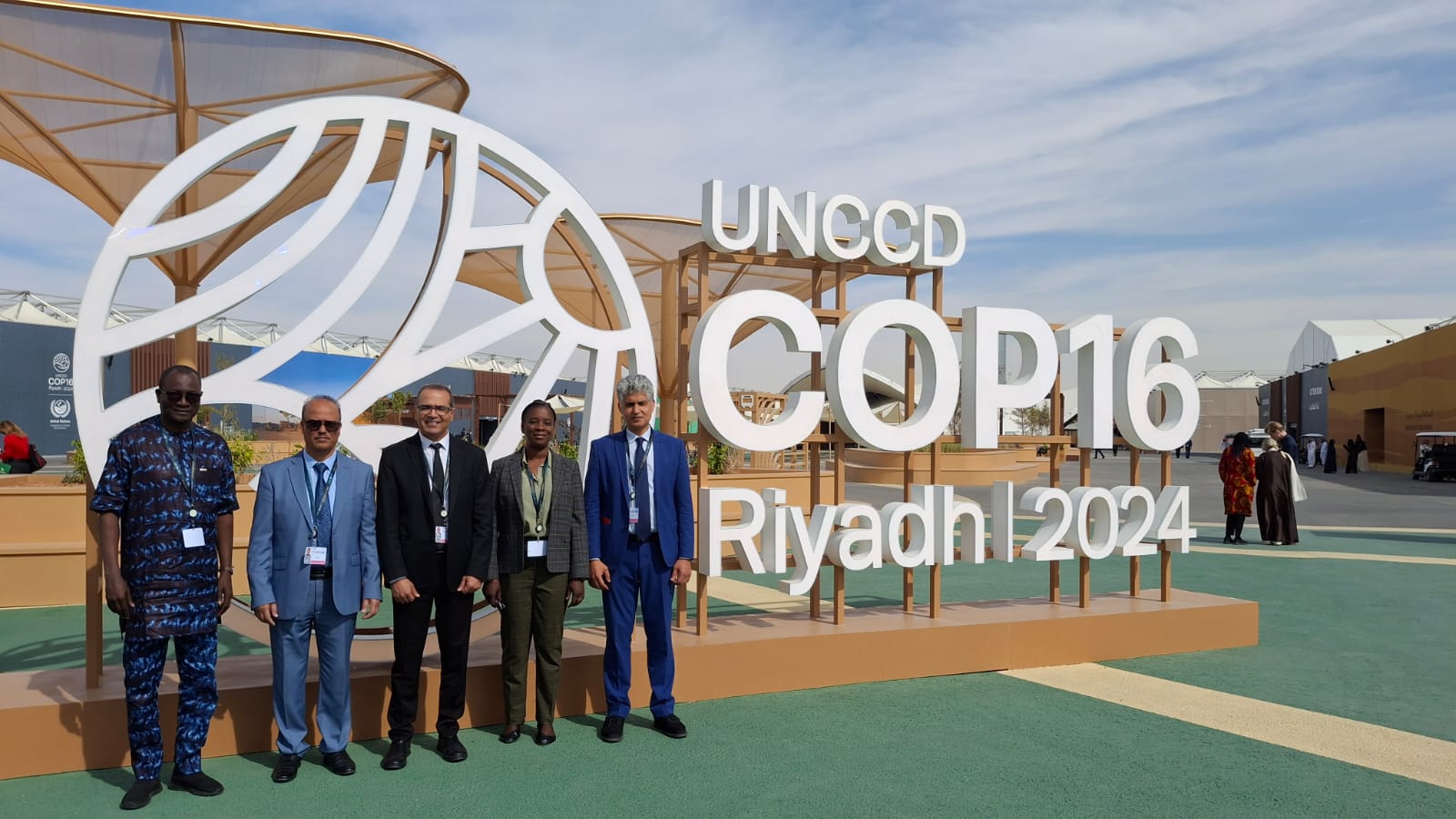
The participation of the Sahara and Sahel…
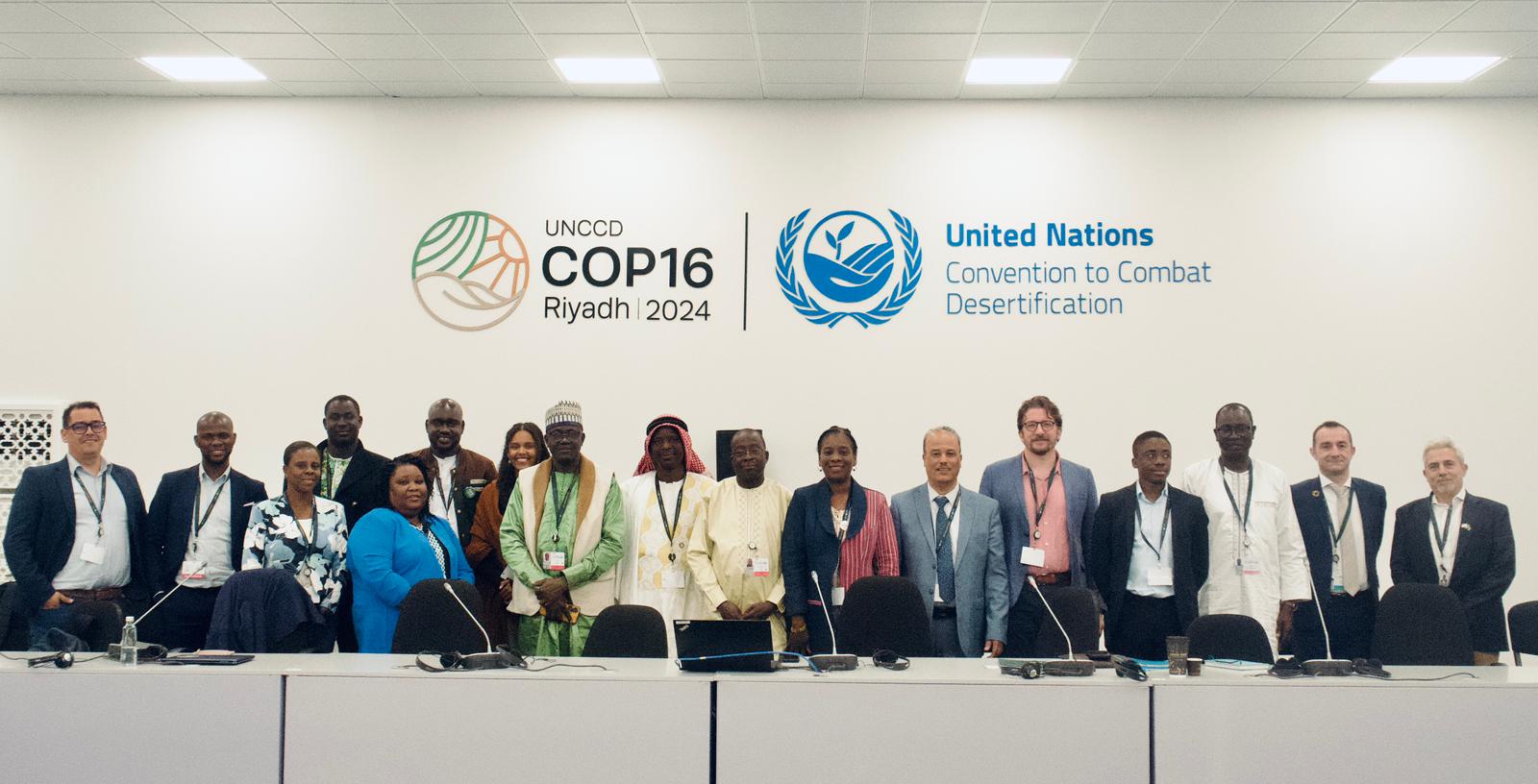
OSS Side Event at COP16: Strengthening Resilience in the Sahel through Multi-…